After the Hurricanes: Is Any Place Safe to Retire
Category: Best Retirement Towns and States
Updated October 22, 2024 — The stunning devastation from Hurricanes Helene and Milton, so quick in succession, puts an exclamation point on climate and other natural disasters. It would not be crazy to wonder – is there anywhere you retire that is safe. And it’s not just hurricanes – the natural disasters that have occurred across the U.S. in recent months are causing a lot of people to reconsider where they retire.
Where is a safe place to retire
Residents of Florida expect hurricanes and their damage, but as people in other states like the Carolinas, Tennessee, and Georgia found out last week, no one is immune from storms like these. What made Helene’s damage so bad was that no one was expecting just how serious its impact was. Residents of the Asheville NC area, 500 miles away from the Florida Coast and one of the most popular areas of the country for retirement, are stranded by washed out roads and bridges, flooded infrastructure, and ruined homes. There is no power, fresh water is only available from state, local, and federal emergency supplies, and cell service is limited. Supplies are being brought in by mule trains. At least 57 people were killed in Buncombe County alone, home to the city of Asheville, and no one even knows how many more deaths will be in the final tally. Here is how you can help victims of the storm.
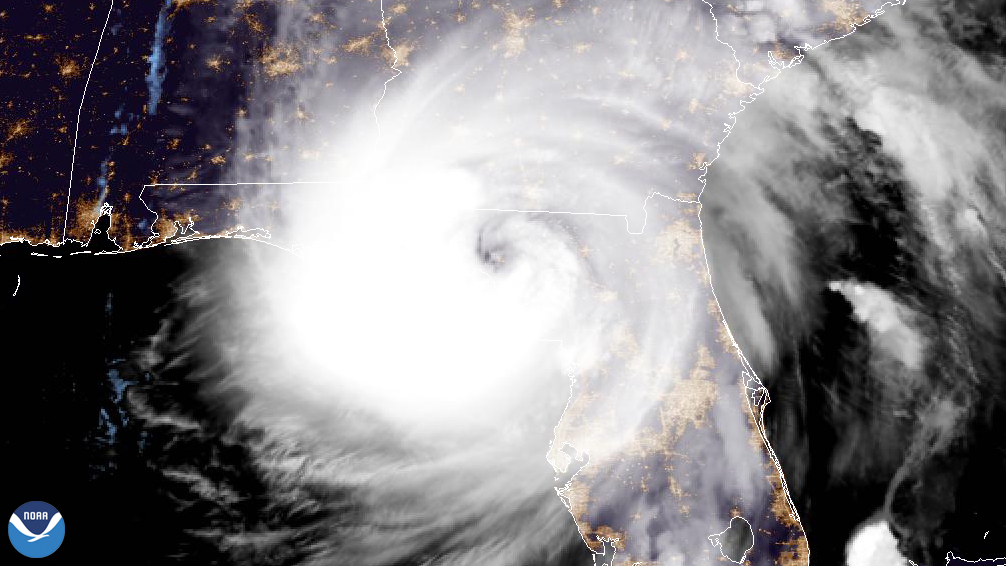
Unfortunately hurricanes are not the only natural disaster that can ruin your retirement – temperature extremes, earthquakes, tornadoes, forest fires, and flooding are devastating areas all around the country. As carbon dioxide levels in the atmosphere rise to the highest levels in the history of the planet, our oceans are both rising and getting warmer. Natural disasters now mean that they are one of the most important considerations when choosing a place to retire. Since these factors affect your home as welll as your personal safety, they are just as critical as the cost of living, taxes, culture, climate, proximity of friends and family, and recreational opportunities. In fact, climate driven hazards are causing insurance rates to soar in many parts of the country.
In this article we will first talk about the kinds of weather and natural issues that could be detrimental to your retirement. We will also provide some ideas on what you can do to mitigate your risks.
Hurricanes. The hurricane belt runs east from Texas along the Gulf Coast, all the way around both coasts of Florida and its interior, and then goes up the Atlantic coast all the way to Maine. As Carolina residents found out last week, hurricanes turned into tropical storms can still cause terrible devastation, hundreds of miles from the coast. The number and the power of these hurricanes, exacerbated by warming oceans, is increasing. These storms are killing people and causing billions of dollars in damage. But hurricanes are certainly not the only natural disaster that can wreak havoc on your retirement.
Temperature extremes. Arizona, southern Texas, Nevada, California, and the Gulf Coast are paralyzingly hot during their long summers. Heat is a deadly killer compared to most other disasters – an estimated 10,000 people died in a 1980 heat wave, and 502 died in a 1999 heat wave. The planet is getting warmer, so this problem will only get worse. Cities like Phoenix are breaking records for the most number of consecutive 100+ degree days.
Tornadoes. With over 384 people killed, the 2011 Super Outbreak set a record for the worst tornado stretch in U.S. history. Tornadoes are quite common in the Midwest and Southeast U.S., but can and do occur just about anywhere, including as a component of many hurricanes. The so-called “Tornado Alley” stretches in the middle of the country from North Texas to Canada.
Earthquakes plague many parts of the U.S. and Canada. Although California and the Northwest are the most common places for earthquakes, they are not unheard of in other parts of the country including the Yellowstone area, Arkansas, Tennessee, Missouri, Illinois, New York State, and Georgia. Earthquakes not only cause horrible properly damage but can kill as well. Southern California has a 1 on 100 chance of a very serious earthquake in any given year. Uncontrollable fires and extended power outages are an attendant risk of earthquakes.
Floods. Cities and states along the Mississippi have some of our worst flooding problems, along with those regions drained by its tributaries from Minnesota to Louisiana to Tennessee and Pennsylvania. But flash floods can occur almost anywhere, as we have seen in Vermont, Colorado, the Carolinas, and elsewhere. As sea levels rise coastal areas in the Southeast such as Charleston and almost all of Florida are increasingly inundated by unusually high tides. Many times the water floods in from underground.
Tsunamis, volcanoes, and mudslides can hit the west coast, including Hawaii.
Wildfires can occur anywhere, but are most common in the west and south. In 2017 much of Florida and Georgia were seriously affected by wildfires propelled by drought.
Very few safe harbors
The truth is that almost every area of the country is exposed to weather problems and natural disasters – there is no truly safe place and very few ideal regions. The New York Times reported 8 Metro areas with the lowest risk in its “Where to Live to Avoid a Natural Disaster“, using data from Sperling’s Best Places. All but one (Grand Junction, Colorado) are in Oregon or Washington State. Unfortunately many of the lowest risk cities have other, less dangerous weather issues like earthquakes or forest fires. Four of the 8 safe harbors, including Seattle, Salem (OR), and Corvallis (OR) are some of the cloudiest and rainiest places in the U.S.
So what can you do
Unless you decide to retire on one of the few places in the world that are totally safe from natural disasters, you have to choose carefully among those that are less safe. Fortunately there are some practical steps you can take to minimize the dangers. We will explore some of those here, and hope that our Members will be able to suggest others.
– Move to one of the States with the history of the fewest natural disasters. There are very few of these left, as wildfires and floods are occuring almost everywhere.
– Check out building codes and how your home was built. Building codes vary by state and city. Typically the newer your home the more advanced techniques it has incorporated in it – like roofs that are tied down, extra bracing in the framing, fireproof building materials, attachment to the foundation, etc. When your home was built is significant, as is the reputation of the builder (as it very hard for a lay person to assess how it was actually constructed).
– Use safer building materials and techniques. There are a number of things you can do to make your home stronger and more resistant to danger. If you live in an area with wildfires, choose concrete roofing tiles and siding. Get hurricane resistant windows or storm shutters – if a window is blown out by debris or wind your house can literally blow up in a hurricane. When buying a new home it is a lot easier to specify these things before it is finished, but retrofitting is always possible too.
– Move to an area with strict development rules. The State of Florida is among many jurisdictions that have eased restrictions on developers in recent years, e.g.; allowing them to build in more dangerous areas, fill in wetlands, and cover natural surfaces with impervious materials. The unexpectedly high flooding in Houston from Hurricane Harvey is a good example of what happens when authorities allow unchecked development. When considering an area to move to, explore how weak development controls, which can lead to flooding and other problems, might lead to problems there.
– Stay away from coastal and other areas prone to flooding. FEMA has maps that rate the flooding risk just about everywhere in the country. Stay away from problem areas – even if it hasn’t flooded there yet! As the flooding in Asheville proved, even places thought to be safe are not.
– Get high! High above the ground, that is. Even if the building code specifies a certain height for new construction, we are now seeing 100 year storms and even 500 year storms. The standard used to be 12? above sea level, now it is higher. Go high if building a home from scratch. When buying an existing home, its height above potential flood levels is one of the most important things of all to consider. Avoid living near streams and rivers.
– Check out the area’s history of natural disasters. Fault lines, flooding, forest fires – these are all big problems. It is like marrying a partner with a history – be careful, some things can’t be changed!
– What is your evacuation plan? Florida and The Florida Keys are a good example of places with that carry evacuation risks. The State has had mandatory evacuations, and when they happen, limited roads mean monumental traffic jams, fuel shortages, and the inability to get back home to work on damage. The pace of recovery is slow because it is so hard to bring in relief. If the area is hard to evacuate from, think twice about moving there.
The Bottom Line
It is easy to fall in love with a place and decide to retire there. But before you make that choice, consider what natural disaster risks it might harbor. If there are risks, do everything you can to mitigate them.
For further reference:
What Hurricane Irma Can Teach Us About the Renting vs. Buying Question in Retirement
Arizona Community’s Water Shut Off – Is There Any Place Safe to Retire
Comments are closed on this topic due to conspiracy theories being posted and rebutted.
comments for this post are closed
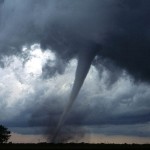
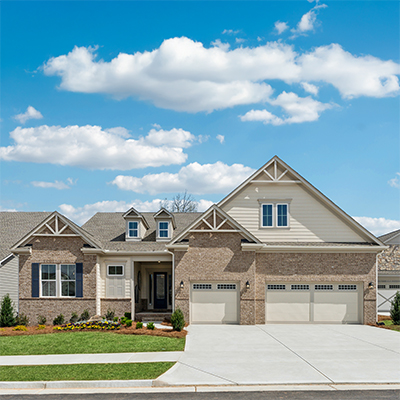
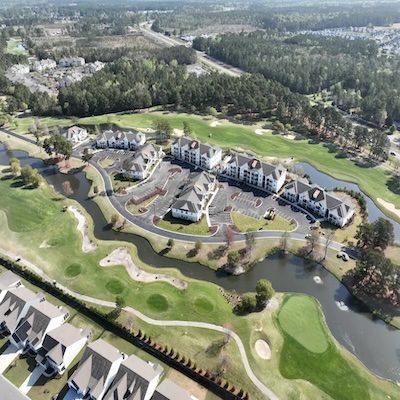


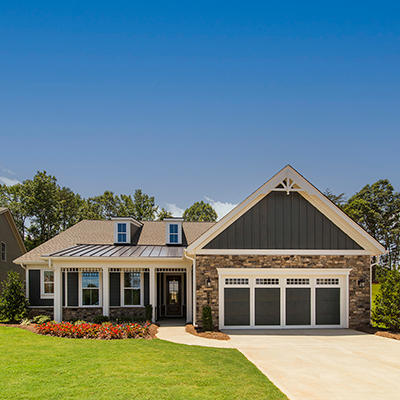

Comments on "After the Hurricanes: Is Any Place Safe to Retire"
Daryl says:
Move to Pittsburgh. Other than the rare wayward tornado, and flash flooding in the hollers, our disasters are mostly man-made.
Robert J Sands Jr. says:
Western Carolina, particularly Asheville, can no longer be considered a "climate haven." Hurricanes could continue to be severe dropping 40 tons of water on a geographic region. Consider snowbird pairing, e.g. NH , VT or ME and FL. The goal is to be as far away from hurricane season (June 1st to Nov. 30th) as possible. Another possible option is Quebec and Florida,...
Patricia Reynolds says:
I love Tucson. However I want sun and heat and don't mind it being around 100 for several months. In the 8 years I have now been there we have had one tiny tornado that just did some minor roof damage in the north part of the city and a couple of hailstorms and fires up in the mountains. The risk here is very low as long as you like the heat
RAF says:
Outstanding article on how to deal with natural disasters and where to relocate for retirement. However, Admin's quote: "As carbon dioxide levels in the atmosphere rise to the highest levels in the history of the planet, our oceans are both rising and getting warmer." suggests climate change/global warming and implies an existential threat. How many of your readers remember the 1960's, 1970's and early 1980's when "experts" were warning of a new Ice Age? Of course, weather changes daily but climate can change from hot to cold and back again over 10, 20, 30, etc. years. The point is that retirees should not get "overheated" about decisions on where to live. Choose the climate with which you are most comfortable as I did in the desert Southwest.
Rufus says:
You nailed it RAF. I remember those articles clearly and in fact you can still check them out on YouTube. This latest hurricane had a horrible effect on the states in its path but as I understand it there was a 10" rainfall a couple of days or so prior to the hurricane that really set up this catastrophe. According to USA TODAY, 10 inches of rain fell on Asheville, 8 inches on Tryon and 6 inches in Bristol-Johnson, Tennessee before Helene even reached the area. Don't panic. Get as many facts as you need as an individual to feel comfortable and then choose your home. Happy Trails!
Andy says:
Don’t forget pollution. Most places are facing increasing pollution, including the U.S., especially air pollution. Wildfires in the West are affecting more than just California. Unstoppable fires in Canada in 2023 poisoned much of the northern US for months. There is no truly safe place, only places that are less unsafe. Perhaps this gives renters cold comfort; at least, they can move at will when disasters strike unlike homeowners who face years of fighting with the insurance industry.
JOHN PIETRANGELO says:
Email from an Asheville realtor (Beth Schadler) that I've communicated with.
Hi Living in Asheville Family,
The Living in Asheville Team and their families are safe and OK! None of our properties were damaged from the storm. It has been amazing how quickly Asheville communities are coming together with the needs of everyone else in mind. People are setting up charging stations. Providing provisions. Sharing or exchanging items in need. The amount of love and support of Neighbors helping Neighbors has been truly beautiful to be a part of. This city has a strong soul and the people are coming together to make it even brighter!
We wanted to extend our love & gratitude to all of you for the outpouring support during this difficult time. I am sure you have seen the devastating coverage on the national news from Hurricane Helene. We never in our wildest dreams would have expected this, nor has it ever happened before of this magnitude. Our focus is to be the boots on the ground, helping in our communities to the best of our abilities while still supporting our individual families with no power or water. There are surrounding areas of Asheville like Waynesville and Maggie Valley, some of South Asheville that have electricity and water.
Everyday there is more and more support coming into the area and our infrastructure is slowly being restored. West Asheville now has electricity as well as parts of North Asheville. Downtown has always been able to keep their electricity in most parts due to the hospital and other critical support functions. Water will probably be the most delayed due to uprooted trees around buried water lines.
Believe it or not, and I know this sounds wild, real estate is still happening. We are seeing sellers lower home prices. So, if you are looking for a home in the Asheville & surrounding areas you may want to keep your eyes peeled in the next two weeks and beyond. There will be special opportunities that come on the market, especially if you are a cash buyer. If this is you, please reach out to Evelyn so she can alert you to any opportunities. Evelyn will also be reaching out to any of you that planned a visit to the area in the coming months.
Again, thank you so much for your support and love during this time. Asheville feels it and we are working as hard as we can to restore our beautiful mountain city for the entire community.
If you would like to donate specifically to local nonprofits please use the links below.
Beloved Asheville is regularly filling up their trucks with food, water and gas and distributing it in Asheville. Donations go directly to funding the food, water and supplies they are bringing. https://www.facebook.com/BeLovedAsheville
Mountain Mule Packer Ranch are taking strings of pack mules with supplies to hard hit areas that are not accessible by any other way. https://www.facebook.com/mountainmulepackersranch/
The Cajun Navy 2016 is bringing supplies directly to the people.
https://www.facebook.com/cajunnavy2016.org
Grassroots Aid Partnership - Another local, grassroots org that is cooking meals locally sourced and distributing in Asheville. https://www.facebook.com/grassrootsaidpartnership
Hearts with Hands disaster relief in Asheville - https://www.heartswithhands.org/
Asheville Dream center is setting up a large distribution center of supplies at the Asheville Mall.
Donate at - https://ashevilledreamcenter.org/
Manna Food Bank of Asheville - https://www.facebook.com/MANNAFoodBank
To Donate relief in the form of tools & equipment… such as chainsaws, generators, and excavators, you can donate directly here to our Venmo
Asheville will rebuild, we will be back with a bigger, brighter, more vibrant community.
Be well,
Beth, Evelyn & Lauren
Living in Asheville Team
Edith Cuttler says:
We are presently in Md. and we were thinking about retirement in Upstate South Carolina! We stumbled into Greenville, SC!!! We have made 4 trips to explore and research possible places to rent. Yet, now…….?
Sharing your thoughts with us about retiring in the Greenville area, including flooding, would be so welcome. ?
We’ve ruled Florida out.
Thank you….?
Mary says:
I recently retired up to New Hampshire and followed all of the advice provided in this article. Plus, I checked the FEMA flood maps for my home's location prior to purchase. In addition, my retirement home has underground utilities and a generator to protect me from power outages. Snow? Yes, I love it and New Hampshire road service is fantastic and my condo association does a super job in clearing our roadway and driveways so that we can get out under nearly every weather situation. Air quality is very good, (except for Canadian fires), and the summer humidity rarely exceeds 80%. Additionally, NH has the second lowest crime rate in the US (after Maine). The fall foliage, that starts in late September and peaks in mid-October, is a huge environmental advantage to living in NH! All year round, we are surrounded by lakes, forests, farms, a seacoast, and mountains as well as easy access to recreation, medical care, shopping, cultural activities, dining, 2 regional airports, and 4 Amtrak stations.
Daryl says:
I’ve enjoyed this site for many years, and have watched each location on my top 10 wish list suffer some sort of disastrous change, whether climate (sea level rise east, water shortages west,) weather, financial (homeowners insurance rates, home prices,) planning (overcrowding, infrastructure), and political (your choice). My husband loves to point this out at every opportunity, since he doesn’t want to move. Many people have also lamented (on this site) that they moved to a cheaper location only to find they can’t afford to move again and feel stuck. So make sure you don’t blow your wad on that shiny new forever home, just in case it’s not nirvana as hoped. Otherwise, boomers moving all around the country and back again is good for the economy, and freeing up the McMansion inventory for the younger generations. Have fun.
Billy says:
Hi Mary, would you care to share where in NH you moved to and some of the general expense. Thanks
RichPB says:
It's almost amusing to read about the fears retirees have over moving to an area where natural disasters "might" threaten. I've lived in or spent time in areas all over the country. None was totally fee of issues. Even in central Vermont you can't avoid issues. 5-6 months of heavy snow and ice plus we also experienced a week long period of -30* or below. That is life threatening for numerous reasons. We've lived through or arrived just after multiple hurricanes , floods and in high risk fire areas. It's not so much that we were lucky as that we weren't unlucky. Most of our lives we've lived in central NC. Hurricanes come and go, but we stay. Yes, check the flood zones, don't live in the highest risk areas (a bit of common sense there), do what is best if a situation threatens. Also consider that most retirees live where they want and adjust as needed. Like anything else in life, determine the level of risk or displacement you are willing to accept.
RichPB says:
BTW, perhaps the greatest risk most of us face is to get in a car and drive. Seniors especially are notoriously bad drivers. Lack of attention, slow reactions, health issues, stiff joints preventing motion to simply turn to look around.
Daryl says:
Nailed it, Rich. And maybe it’s not so much fear but desire to avoid the hassles of preparation, evacuation, etc. as you get older. Was surprised when guy sitting next to me on plane who’s lived in my desired destination for 20 years said he’s done and headed back to our current city, listed all his reasons why, and I realized I would feel the same. Thats why I love the personal stories on this site. Gives you viewpoints you might not have considered on your own.
Mike says:
While you may find a location that is not affected by natural disasters that doesn’t mean you will be immune.
Taxpayers will pay (and borrow) more to fund :
The Federal Emergency Management Agency.
The Federal Flood Insurance program.
Farm subsidies to cover crop losses and flooding.
Costs from fighting more frequent and destructive wildfires.
Repairs to infrastructure.
Programs to mitigate rising seas.
Costs of damage from wind and tornados.
Repairing or relocating military installations, schools and hospitals.
Costs of deploying the military to disaster areas.
Subsidies to cover the loss of economic activity and unemployment.
Everyone will be affected by:
Rising insurance rates.
Rising food prices.
Water shortages.
Higher energy costs.
More heat related deaths and injuries.
Increased costs of home construction due to material and labor shortages. Damage to sanitation, roads, telecommunications and electricity systems.
Banks and mortgage companies left with worthless properties abandoned by their owners.
Problems we can’t foresee.
I can see the insurance industry collapsing which will require a taxpayer funded bailout. An exaggeration? The Governor of Florida said they don’t not have enough money in the state sponsored insurance program to cover major hurricane losses hitting the most populous and expensive areas. California can’t be far behind.
The “remember the1960's,1970's and early 1980's when "experts" were warning of a new Ice Age? ” slogan is often used to deny climate change. From the American Meteorological Society: “An enduring popular myth suggests that in the 1970s the climate science community was predicting “global cooling” and an “imminent” ice age, an observation frequently used by those who would undermine what climate scientists say today about the prospect of global warming.” An AMS review of the literature between 1965 and 1979 found that only seven articles predicted global cooling while 44 indicated a warming climate.
The oil, gas and coal industries used the same playbook that worked so well for the tobacco industry. First the fossil fuel industry’s own research confirmed or predated public warnings about their product. To delay or prevent regulations, legislation and lawsuits they started a decades long campaign of deception on an American public groomed to not trust scientists, experts and the Government. To ensure public policy doesn’t interfere with their bottom line they bribed the necessary officials. Mission Accomplished! All the things we have been warned about for decades by climatologists are now coming true. What are the odds that they got the results right just not the cause?
Mike says:
While you may find a location that is not affected by natural disasters that doesn’t mean you will be immune.
Taxpayers will pay (and borrow) more to fund :
The Federal Emergency Management Agency.
The Federal Flood Insurance program.
Farm subsidies to cover crop losses.
Costs from fighting more frequent and destructive wildfires.
Repairs to infrastructure.
Programs to mitigate rising seas.
Costs of damage from wind and tornados.
Repairing or relocating military installations, schools and hospitals.
Costs of deploying the military to disaster areas.
Subsidies to cover the loss of economic activity and unemployment.
Everyone will be affected by:
Rising insurance rates.
Water shortages.
Higher energy costs.
More heat related deaths and injuries.
Increased costs of home construction due to material and labor shortages. Damage to sanitation, roads, telecommunications and electricity systems.
Banks and mortgage companies left with worthless properties abandoned by their owners.
Problems we can’t foresee.
I can see the insurance industry collapsing which will require ataxpayer funded bailout. An exaggeration? The Governor of Florida said they don’t not have enough money in the state sponsored insurance program to cover major hurricane losses hitting the most populous and expensive areas. California can’t be far behind.
The “remember the1960's,1970's and early 1980's when "experts" were warning of a new Ice Age? ” slogan is often used to deny climate change. From the American Meteorological Society: “An enduring popular myth suggests that in the 1970s the climate science community was predicting “global cooling” and an “imminent” ice age, an observation frequently used by those who would undermine what climate scientists say today about the prospect of global warming.” An AMS review of the literature between 1965 and 1979 found that only seven articles predicted global cooling while 44 indicated a warming climate.
The oil, gas and coal industries used the same playbook that worked so well for the tobacco industry. First the fossil fuel industry’s own research confirmed or predated public warnings about their product. To delay or prevent regulations, legislation and lawsuits they started a decades long campaign of deception on an American public groomed to not trust scientists, experts and the Government. To ensure public policy doesn’t interfere with their bottom line they bribed the necessary officials. Mission Accomplished! All the things we have been warned about for decades by climatologists are now coming true. What are the odds that they got the results right just not the cause?
Rufus says:
Does anyone know what the "normal" temperature of the earth is supposed to be? Are we headed toward normal or away from normal? I mean what with previous ice ages and all...
Daryl says:
I’m with ya, Mike. In any case, nothing will change for the better anytime soon, and we’ve gotta deal with what’s happening right now. Heck, even slavery is trying for an image makeover in history books as a benevolent internship providing useful job skills. It’s not lack of knowledge that’s holding us back.
RichPB says:
Rufus, there actually is no "supposed to be 'normal'". For what period? This decade, century, recorded history or including all the ice ages and volcanic blow-aways the earth has experienced? All that is really important is what's happening now and that isn't good for humanity unless you simply want to wait for all the new beaches.
Mike, On the nose! All the fools who have ignored Al Gore in 2001 and since have led us to this. There are climatologists who think we are on the brink (or past) of no return to salvage our world. Recent (past year or two) new information about the melting Arctic, Greenland and especially under the Antarctic Ice Shelf indicate we're much farther down the slippery slope that previously projected (late 2000s) for catastrophe. Does it really matter if it is human combustion (it is at partially) or simply a continued regression from the past ice ages (it's not like the climate fluctuations are a straight line function)? It may well not be too late, but doing little to nothing to alleviate human contribution does not provide a comforting outlook.
Karen says:
Mary, my husband also wants to retire to NH. We are a few years away. He loves the White Mountains but I find it too rural. Would love to know where you ended up!!! I'm currently from MA.
Danno says:
RichPB I'd love to respond to your latest post but I guarantee from past experience Admin will delete it even though my point was and would be very valid. They just don't want it to be seen I guess.
Daryl says:
For a more immediate threat than climate change, read what MTG said on X (former) Twitter last week about people manipulating the weather to produce hurricanes in certain regions:
“Yes, they can control the weather,” Greene wrote on X, formerly known as Twitter, Thursday evening. “It’s ridiculous for anyone to lie and say it can’t be done.” Then went on to show the areas affected by hurricane Helene and their political bent.
Here’s you link:
https://x.com/mtgreenee/status/1842039774359462324
So if we want these “natural” disasters to end, better find out who “THEY” are and get on their good side. And don’t move to an area “THEY” have selected to demolish.
Editor Comment: I can't tell if this is a serious comment or tongue in cheek. Sure hope it is the latter!
Daryl says:
I meant it sarcastically, but people have believed stranger things.
RichPB says:
Amusing and well put, Daryl. Lightened me up. MTG is almost as far over the top as anyone ever. But seriously, I am the one who controls the weather. Sorry I stumbled a bit on these last two.